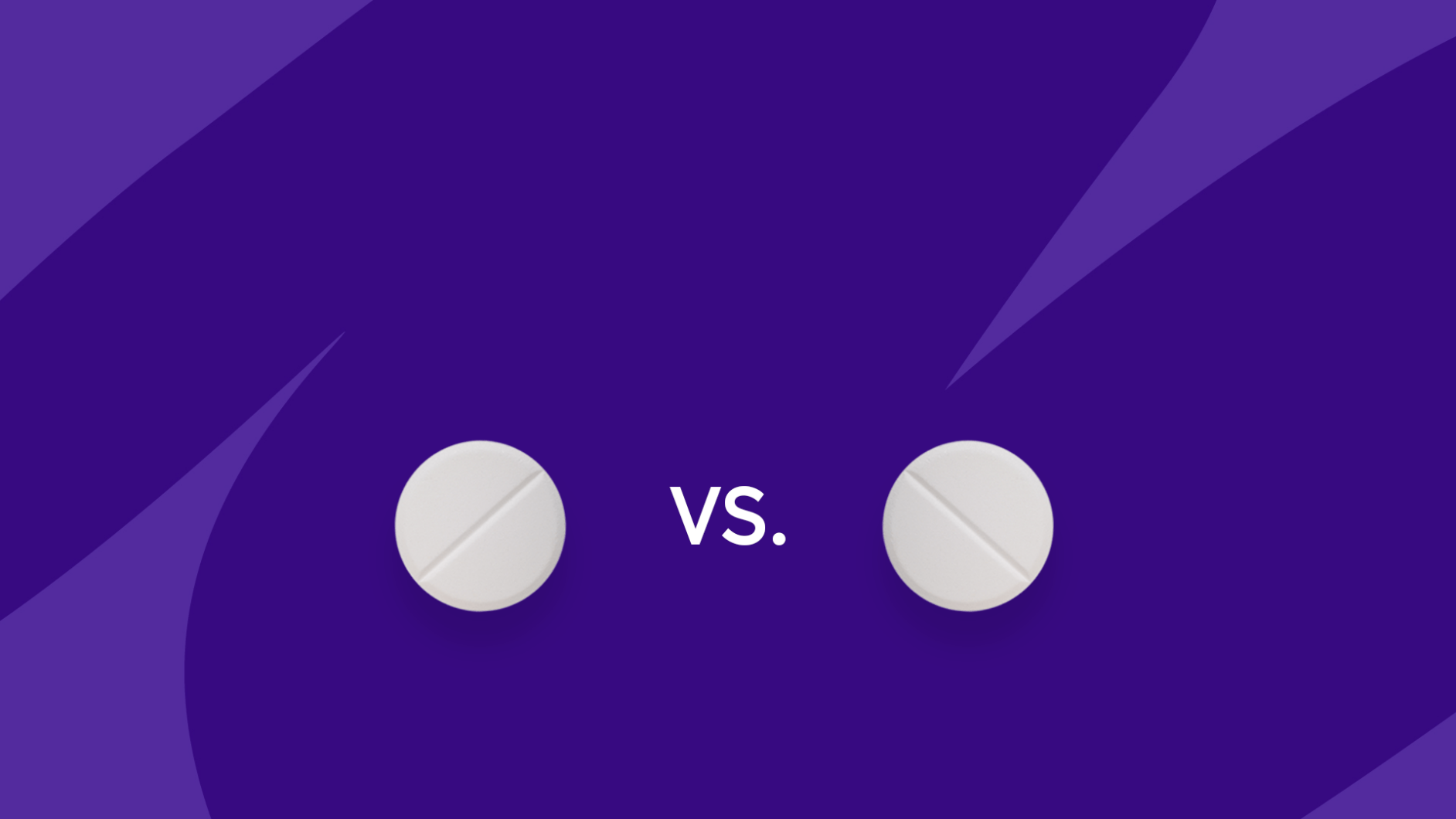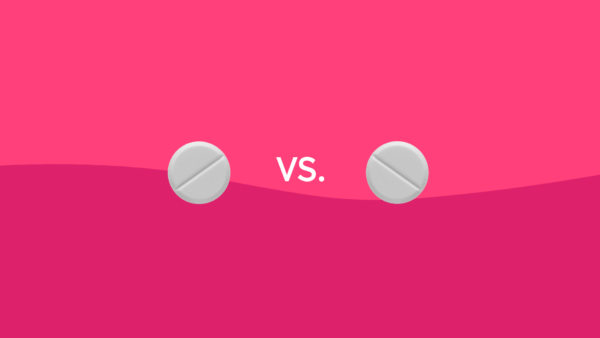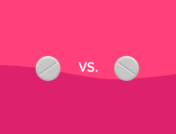Key takeaways
Jardiance and Januvia are both brand-name prescription oral medications used to treat Type 2 diabetes.
Jardiance is also FDA approved to treat heart failure and CKD, and it is sometimes prescribed off-label for weight loss.
Jardiance helps treat Type 2 diabetes by increasing the amount of blood sugar excreted through the kidneys, while Januvia helps treat Type 2 diabetes by triggering the release of insulin.
Though both of these diabetes medications are effective, Jardiance has a higher risk of side effects.
No single diabetes drug is the best one. Seek medical advice from your healthcare provider or pharmacist to find the most fitting drug for you.
Key differences │ Conditions treated │ Insurance and cost │ Side effects │ Interactions │ Warnings │ Bottom line
Jardiance and Januvia are two brand-name medicines used to control blood sugar levels in people with Type 2 diabetes. Jardiance is also used to treat chronic kidney disease (CKD) and heart failure. Although both Jardiance and Januvia are both often prescribed for blood sugar control, they belong to different drug classes and have notable differences in how they work.
Jardiance vs. Januvia: Key differences
“Jardiance and Januvia are two different medications for the treatment of Type 2 diabetes,” says Jodie Pepin, Pharm.D., the clinical pharmacy program director at Harbor Health. “They are from two different classes of medications that have two distinct mechanisms of action.”
Jardiance, a sodium-glucose cotransporter 2 (SGLT2) inhibitor, is also known as a glucose absorption inhibitor, according to Angela Ginn-Meadow, a registered dietitian and certified diabetes educator. Ultimately, SGLT2 inhibitors like Jardiance lower blood sugar by flushing excess blood glucose through the kidneys (and eventually urination).
Januvia is a dipeptidyl peptidase-4 (DPP-4) inhibitor that works by blocking DPP-4, a protein that breaks down incretins. Ultimately, DPP-4 inhibitors like Januvia lower blood sugar by indirectly triggering insulin release.
Apart from using entirely different processes to control blood sugar, Jardiance and Januvia also differ in their approved indications. Januvia is only approved by the Food and Drug Administration (FDA) for blood sugar control in adults with Type 2 diabetes. Jardiance, however, is approved for children ages 10 and older with Type 2 diabetes. Jardiance also has two other FDA-approved indications:
- In adults with chronic kidney disease: To reduce the risk of further worsening kidney disease, end-stage kidney disease, death due to cardiovascular disease, and hospitalization
- To reduce the risk of cardiovascular death in adults with heart failure and in adults with both Type 2 diabetes and heart disease
Compare key differences: Jardiance vs. Januvia |
||
|---|---|---|
| Jardiance | Januvia | |
| Drug class | Sodium-glucose cotransporter 2 (SGLT2) inhibitor | Dipeptidyl peptidase-4 (DPP-4) inhibitor |
| Brand/generic status | Brand | Brand |
| What is the generic name? | Empagliflozin | Sitagliptin |
| What form(s) does the drug come in? | Oral tablet | Oral tablet |
| What is the standard dosage? | 10 mg or 25 mg per day | 100 mg per day |
| How long is the typical treatment? | Indefinite; long-term | Indefinite; long-term |
| Who typically uses the medication? | People ages 10 and older with Type 2 diabetes,
adults with heart failure, and adults with CKD |
Adults with Type 2 diabetes |
Jardiance vs. Januvia: Conditions treated
Jardiance and Januvia are both used to treat Type 2 diabetes. They are not cures for diabetes; rather, both drugs help control blood glucose levels.
Other than Type 2 diabetes, Jardiance treats heart failure and CKD. Jardiance is not a weight loss medication, but it is sometimes used off-label for weight loss since weight loss can be a side effect of SGLT2 inhibitors.
Compare conditions treated: Jardiance vs. Januvia |
||
|---|---|---|
| Condition | Jardiance | Januvia |
| Type 2 diabetes | Yes | Yes |
| Heart failure | Yes | No |
| Chronic kidney disease | Yes | No |
| Weight loss | Off-label | No |
Is Jardiance better than Januvia?
“So many people who have diabetes have other medical conditions as well,” Dr. Pepin says. “The art of treating diabetes is to understand these conditions and to choose medications that benefit some chronic conditions and reduce the risk of adverse reactions.” In other words, whether Jardiance is better than Januvia depends on your current conditions and overall health.
Both Jardiance and Januvia are effective treatments for Type 2 diabetes, but Januvia is only approved for adults, while Jardiance is also approved for children ages 10 and older. Jardiance also has more approved indications as a treatment for heart failure and for CKD.
“In the end, your healthcare provider should help choose the best medication for you,” Ginn-Meadow says. Diabetes treatment options vary depending on the severity of the condition, the patient’s body weight, the risk of hypoglycemia (low blood sugar), and more.
Jardiance vs. Januvia: Insurance coverage and cost comparison
Without insurance, the average retail price of Jardiance is about $838 for 30, 25 mg tablets, and the average retail price of Januvia is about $781 for 30, 100 mg tablets. However, drug prices vary by pharmacy, dosage, location, and more. If you have insurance, Medicare, or Medicaid, you’ll likely pay less. Check with your health insurance plan for more information.
You can save money by using a SingleCare prescription discount card to access Jardiance and Januvia coupons from your preferred pharmacy. With SingleCare coupons, you may pay as low as $526 for a month’s supply of Jardiance and $360 for a month’s supply of Januvia.
Compare cost & coverage: Jardiance vs. Januvia |
||
|---|---|---|
| Jardiance | Januvia | |
| Typically covered by insurance? | Yes | Yes |
| Typically covered by Medicare Part D? | Yes | Yes |
| Quantity | 30, 25 mg tablets | 30, 100 mg tablets |
| SingleCare cost* | $526 | $360 |
*Cost varies by pharmacy, location, dosage, and more.
Jardiance vs. Januvia side effects
Because Jardiance and Janucia have different mechanisms of action, they tend to cause different adverse effects.
“Common side effects of Jardiance include urinary tract infections and yeast infections,” Ginn-Meadow says. Other Jardiance side effects include upper respiratory infections, increased urination, elevated levels of fats or cholesterol in the blood (dyslipidemia), joint pain, nausea, and kidney problems.
The most common side effects of Januvia are cold symptoms and headaches.
Both of these drugs also come with a risk of serious side effects, such as pancreatitis for Januvia and ketoacidosis for Jardiance.
Patients considering Jardiance or Januvia should consult a healthcare provider for a complete list of side effects.
Compare side effects: Jardiance vs. Januvia |
||||
|---|---|---|---|---|
| Jardiance | Januvia | |||
| Side Effect | Risk? | Frequency | Risk? | Frequency |
| Urinary tract infection | Yes | 9.3% | No | — |
| Genital infections | Yes | 5.4% (female) or 3.1 % (male) | No | — |
| Upper respiratory tract infections | Yes | 3.1% | Yes | 5.5–6.3% |
| Increased urination | Yes | 3.4% | No | — |
| Dyslipidemia | Yes | 3.9% | No | — |
| Joint pain | Yes | 2.4% | No | — |
| Nausea | Yes | 2.3% | No | — |
| Runny nose or congestion | No | — | Yes | 5.2% |
| Headache | No | — | Yes | 2.3–3.9% |
Source: DailyMed Jardiance / Januvia
Januvia and Jardiance drug interactions
“The list of drug-drug interactions is almost exactly the same [for Januvia] as the list for Jardiance,” Dr. Pepin says. “Even though these are two very distinct chemicals, the drug interactions have to do with what the drugs do in the body as opposed to a chemical interaction between two medications.”
Ginn-Meadow emphasizes that Januvia should never be mixed with glucagon-like peptide-1 (GLP-1) agonists, such as Ozempic or Mounjaro. Jardiance can also interact with diuretics.
Note: The following is not a conclusive list of drug interactions for Januvia and Jardiance. Dr. Pepin says it is always best to check with your pharmacist to review your medication list for possible interactions.
Compare drug interactions: Jardiance vs. Januvia |
|||
|---|---|---|---|
| Drug | Drug Class | Januvia | Jardiance |
|
ACE inhibitors | Yes | No |
|
Diuretics | No | Yes |
|
Insulin secretagogue | Yes | Yes |
Januvia and Jardiance drug warnings
Januvia and Jardiance are not the right medications for everyone. It’s essential to weigh the risks against the benefits and consult a healthcare provider if you have questions about your condition or situation.
Because Jardiance increases the kidney’s filtration of blood sugar, it is not recommended for patients with severe kidney disease or those who are on dialysis. It also should not be used in patients with Type 1 diabetes, patients at risk of ketoacidosis, or anyone with a known sensitivity or allergy to empagliflozin, the active ingredient in Jardiance.
Other Jardiance warnings include:
- The potential to cause dangerously low blood pressure
- Not being approved for use in children younger than 10 years of age
- Not being recommended for use in pregnant or breastfeeding women
Januvia has fewer side effects and warnings than Jardiance. However, Januvia has been linked to rare cases of severe, acute pancreatitis, according to the American Diabetes Association. It is not recommended for patients with an increased risk of pancreatitis, and anyone taking Januvia who experiences sudden abdominal pain should seek emergency medical attention.
Other important Januvia warnings include:
- Not being approved for use in children
- Lack of research on Januvia use in pregnant or breastfeeding women, so potential risks and benefits should be discussed with the provider
Bottom line: Januvia vs. Jardiance
Januvia and Jardiance are both FDA approved to help manage blood sugar in people with Type 2 diabetes. Jardiance has also been approved to treat CKD and heart disease. Additionally, children ages 10 and older can use Jardiance for the treatment of Type 2 diabetes, while Januvia is only for adults.
In conjunction with a healthy diet and exercise, both Januvia and Jardiance have proven to be effective at helping people with Type 2 diabetes keep their blood sugar levels under control. Jardiance also has cardioprotective effects, but it also has more side effects.
Only a healthcare professional can advise you on which diabetes medication, Januvia or Jardiance, is right for you.
Sources
- Highlights of prescribing information, Merck Sharp & Dohme Corp. (2018)
- Highlights of Prescribing information, Boehringer Ingelheim Pharmaceuticals, Inc. (2022)
- Dyslipidemia, StatPearls (2023)
- Jardiance- empagliflozin tablet, film coated, DailyMed (2023)
- Januvia- sitagliptin tablet, film coated, DailyMed (2023)
- Pancreatic safety of sitagliptin in the TECOS study, Diabetes Care (2017)





